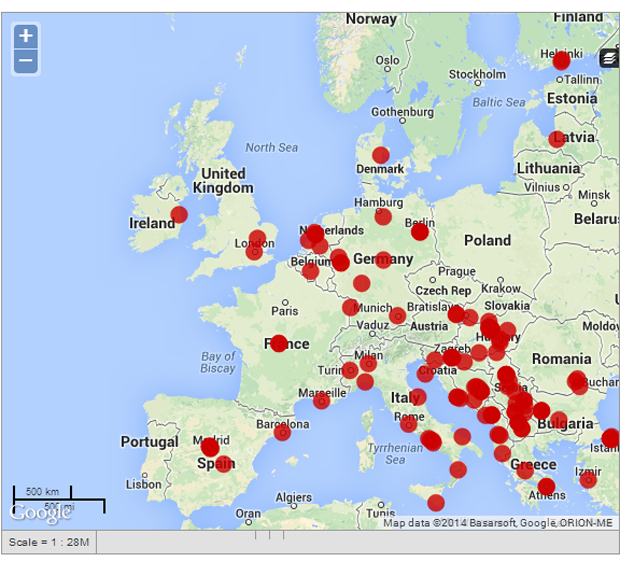11 Jul 14 | Events, News and features, Volume 43.01 Spring 2014
It was a full house at the Goethe Institut in west London on Thursday night as Index magazine launched its latest issue with a debate on freedom in Europe, 25 years after the fall of the Berlin Wall. Did things turned out as we expected? Is the world a better place? What lies ahead?
Our panel – led by editor Rachael Jolley – included playwright David Edgar, historian Timothy Garton Ash, V&A director Martin Roth, journalist Kate Maltby, German author Sebastian Borger, and Polish philosopher and LGBT activist Tomasz Kitlinski.
After opening up to questions from the floor, the debate steered through a wide-ranging field of topics: nostalgia, capitalism, art censorship, minorities, LGBT rights, new divides, the rise of the far right.
The audience – packed with Index supporters, journalists, academics, members of the arts world and newcomers – also got to cast their vote on whether we are freer now than before the wall was dismantled. Opinions were split and a mumble went through the room: “Who are ‘we’?”
Read more on the issues raised in our current magazine – a post-wall special – and get a taster of the debate, below.
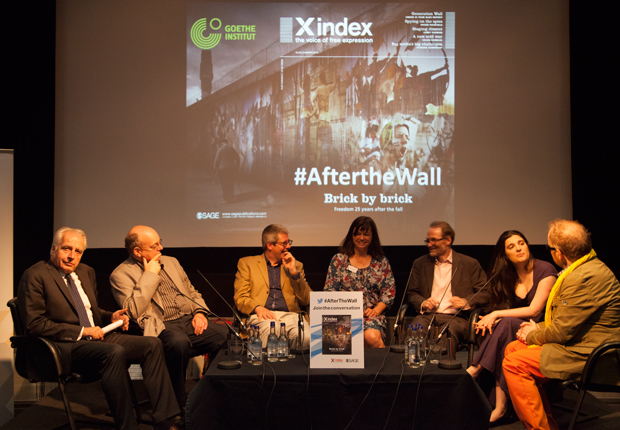
11 Jul 14 | About Index, Comment, News and features, Religion and Culture
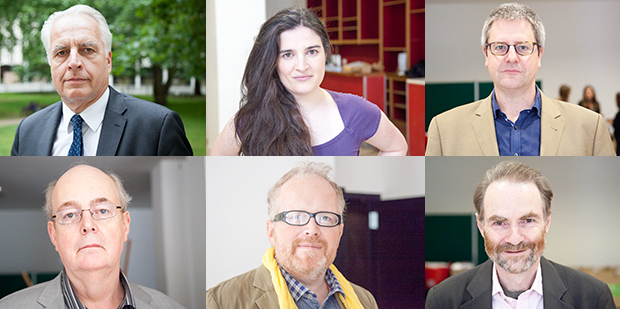
Martin Roth, Kate Maltby, Sebastion Borger, David Edgar, Tomasz Kitlinski and Timothy Garton Ash.
In 1977, the Russian dissident Alexander Ginzburg — whose detention and sentencing almost a decade earlier helped to spur the creation of Index on Censorship — was again arrested by the Soviet authorities. For 17 months, a team of KGB officers interrogated the poetry publisher, threatening to arrest friends and colleagues unless he co-operated, attempting to scare him with the prospect of the death penalty and denying him medical treatment.
In the midst of this, Ginzburg recalled: At least I knew they would not kill me before the trial. “This is because I was a defended person, someone whom the West knew about and was likely to make a fuss about. Without this form of defence, political prisoners just die”.
I was reminded of Ginzburg’s comments last night as we discussed freedom in Europe 25 years after the fall of the Berlin Wall. A question was posed: Are we more free than we were in 1989? In a surprisingly tightly contested vote, the majority edged it with the decision that we were freer.
Kate Maltby, one of our panellists, pointed out that her Hungarian family could now travel freely to meet loved ones outside the country, something they could not do before the wall fell. Others on the panel, which included historian Timothy Garton Ash and playwright David Edgar, pointed to political plurality and greater protections for free expression. Martin Roth, director of the V&A museum, recalled the East Germany’s transition to capitalism in Dresden, with graffiti reading “Elect money”. But a warning note was also sounded that reminded the audience that hard won freedoms need to be protected. Tomasz Kitliński, Polish political philosopher and civic activist, put it best when he described the new dissidents: artists and writers who continue to face threats from the authorities. He pointed to cases like that of Dorota Nieznalska, who was convicted of blasphemy, fined and prevented by a judge from leaving the country for displaying a piece of art that included an image of a penis on a cross. The exhibition of which her installation formed part was closed down by authorities.
Elsewhere, as we see in the reports coming into our EU media mapping project, authorities, particularly in the Balkans, are taking an increasingly hard line on the media and other civil society groups, while in countries like Russia and Turkey new laws are being used to suppress freedom of expression online. Threats also persist offline. Last week, Index joined calls for Tajikistan to release a Canada-based academic, Alexander Sodiqov, who was arrested for “spying” while on a research trip and who now faces a jail sentence of between 12 and 20 years. Sodiqov is also accused of treason a charge that was similarly laid at the door of Ginzburg by the Soviet authorities nearly 40 years ago.
Are we more free in Europe and the former Soviet Union than in 1989? Certainly. Are we all more free? No. And, as cases like those of Sodiqov remind us, we can never be complacent.
This article was posted on July 11, 2014 at indexoncensorship.org
11 Jul 14 | Awards, News and features, Turkey
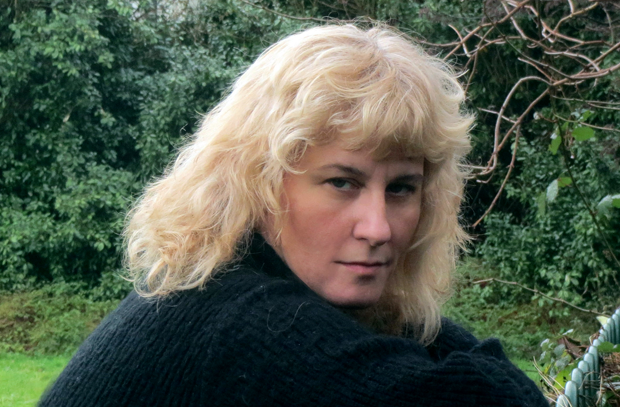
Meltem Arikan
Three months have passed since the 2014 Index Awards and we caught up with arts nominee, Meltem Arikan. The Turkish playwright and author told Index she has finished the script of a new play, Sheep Republic. She hoped it would be staged in Turkey, but the political situation in the country prevents this from happening. She looks forward to hopefully having it staged in the UK with the team who brought her previous play, “Mi Minor” to life.
Index: What projects have you been working on since the Index Awards?
Arikan: I wrote a performance piece for The International Performance Festival Cardiff called “Recalling love: And woman and man” and it was performed in June by Memet Ali Alabora and Pinar Ogun, whom I created Mi Minor with. Then I finished writing the script of my new play “Sheep Republic” which is about oppression and how easily it’s accepted by people.
The play was written to be staged in Turkey originally, however it doesn’t look like it is going to be possible because of political reasons. So we want to stage it here with the creative team of “Mi Minor”.
Nowadays I am working on another theatre piece where I’m questioning the concept of “belonging” through my own experiences, feelings and observations of nationalities, races, languages and communities; this time to be performed in Welsh language, and quite unusually English language will be the foreign language. It will be previewed in Eisteddfod Festival as part of Theatr Genedlaethol’s Cwt Drama on 7 August.
Index: What do you hope for the future of these projects and your life in the next coming months?
Arikan: I always find questions about hope quite difficult to answer. So much that I have even named one of my novels “Hope is a curse.” My agent Meg Davis has introduced my banned book “Stop hurting my flesh” to publishers in the UK. It’s an ongoing process but the idea of my novel being published, excites me very much, just like the thought of “Mi Minor” to be staged in the UK.
Index: Before the awards, did you feel you had less recognition?
Arikan: After being nominated by Index, in February 2014, I was invited to PEN Ethiopia 3rd congress with Julia Farrington from Index, where I met the President of German PEN, Josef Haslinger, who has recently invited us to Frankfurt Book Fair in October to introduce my story and my work.
It was great to be nominated by Index and it surely gave me more recognition. Moreover, being a part of the Index family and to be able to write articles about freedom of speech and expression is just as important for me.
Last year during Gezi Park demonstrations it was hard enough to deal with the false allegations made in various media about my play and the “Mi Minor” creative team. We were accused of rehearsing Gezi park demonstrations with our play. We were completely exhausted, and didn’t feel safe to leave our houses in Istanbul. They were making a lot of TV shows about “Mi Minor” which included an edited version of one of my speeches that I made six years ago about secularism. As a result of these accusations I have received thousands of death and rape threats. The fear I witnessed in my son’s eyes and the anxiety that my partner was living through was what upset me the most. I still feel fragile when I recall the moments I had to leave them behind and come to the UK to stay alive. Because of the notorious recognition, I was even being cautious while walking on the streets of London in the first couple of months of coming here.
Index: How has your life changed since being nominated for an Index Award?
Arikan: I came to the UK with one piece of luggage, leaving everything behind, then I met Julia Farrington and she offered to do an interview with me. So we archived my story with three interviews which was very difficult and encouraging for me at the time.
Later I was nominated for an Index Award, and I met Index staff through the Index Awards and when they asked me to write for the website, I was delighted. Writing is what keeps me sane. I don’t know how to survive without writing so I am thankful to be supported as a writer by Index On Censorship.
This article was posted on July 10, 2014 at indexoncensorship.org
11 Jul 14 | Germany, Mapping Media Freedom, News and features
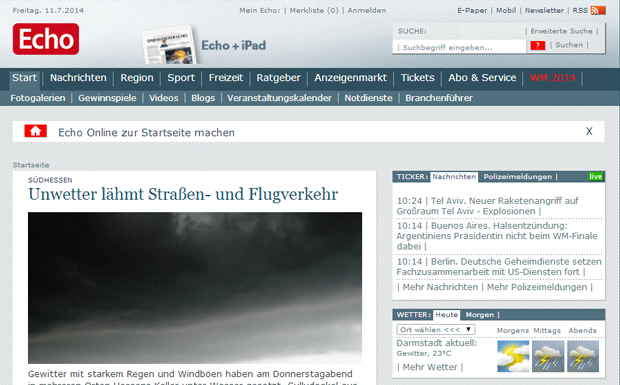
A local newspaper in the western German city of Darmstadt is at the centre of a legal case that will measure whether readers’ comments are protected by Germany’s press freedom laws.
On June 24, police and the Darmstadt public prosecutor arrived with a search warrant at the offices of the newspaper Echo. A complaint had been filed over a 2013 reader comment on Echo’s website. Months later, a local court issued a search warrant to force the newspaper to hand over the commenter’s user data.
The comment, which was left under the username “Tinker” on an article about construction work in a town near Darmstadt, questioned the intelligence of two public officials there. Within hours, Echo had removed the comment from its website after finding that it did not comply with its policy for reader comments. According to a statement Echo released after the June confrontation with police, the two town administrators named in the comment had filed the complaint, alleging that it was insulting. This January, Darmstadt police sent the newspaper a written request for the commenter’s user data. Echo declined.
When police showed up at Echo’s offices five months after their initial request for the commenter’s identity, the newspaper’s publisher gave them the user data, preventing a search of Echo’s offices. A representative for the Darmstadt public prosecutor later defended the warrant.
“It’s our opinion that the comment does not fall under press freedom because we assume that the editorial staff doesn’t edit the comments,” Noah Krüger, a representative for the Darmstadt public prosecutor, told Echo.
According to Hannes Fischer, a spokesperson for Echo, the newspaper is preparing legal action against the search warrant.
“We see this as a clear intervention in press freedom,” Fischer said. “Comments are part of editorial content because we use them for reporting – to see what people are saying. So we see every comment on our website as clearly part of our editorial content, and they therefore are to be protected as sources.”
In early 2013, a search warrant was used against the southern German newspaper Die Augsburger Allgemeine to retrieve user data for a commenter on the newspaper’s website. In that case, a local public official had also filed a complaint over a comment he found insulting. The newspaper appealed the case and an Augsburg court ruled that the search warrant was illegal. The court rejected the official’s complaint that the comment was insulting, but also ruled against Die Augsburger Allgemeine’s claim that user comments are protected under press freedom laws.
In Echo’s case, the commenter’s freedom of speech will likely be considered in determining whether the comment was insulting. If convicted of insult, the commenter could face a fine or prison sentence of up to one year. Given the precedent from the 2013 case and the public prosecutor’s response, it’s unclear whether press freedom laws may be considered against the search warrant. Ulrich Janßen, president of the German Journalists’ Union (dju), agreed that user comments should be protected by press freedom laws. “If the editors removed the comment, then that’s a form of editing. That speaks against the argument that comments are not editorial content,” Janßen said. Warning that the search warrant against Echo may lead to intimidation of media, Janßen cautioned, “Self-censorship could result when state authorities don’t respect press freedom of editorial content.”
Recent reports from Germany via mediafreedom.ushahidi.com:
Court rules 2011 confiscation of podcasters’ equipment was illegal
New publisher of tabloid to lay off three quarters of employees
Police use search warrant against newspaper to obtain website commenter’s data
Blogger covering court case faced with interim injunction
Competing local newspapers share content, threatening press diversity
Transparency platform wins court case against Ministry of the Interior
This article was posted on July 11, 2014 at indexoncensorship.org
10 Jul 14 | Europe and Central Asia, Ireland, News and features

(Image: Quka/Shutterstock)
A recent court ruling in Ireland could have reintroduced the concept of criminal libel to the state, despite criminal defamation offences being abolished as recently as 2009.
The case itself was one of a particularly grim relationship break up. Names are not available as the people involved were also locked in a criminal case in which the male partner was accused of rape and false imprisonment, though he was acquitted of both.
But the details available are: couple breaks up in January 2011. They remain in touch. In April 2011, man goes to woman’s house to, according to the Irish Times’s report “confront her over a perceived infidelity”. Man later leaves woman’s house, but not before stealing her phone. Man goes through woman’s messages, which suggest she has started a new relationship. Man opens woman’s Facebook on phone and posts remarks from her account, making it appear that she is presenting herself as a “whore” who would take “any offers”. Drink was a factor, as the Irish court reporting phrase goes.
This action led to a charge under the Criminal Damage Act 1991, under which “A person who without lawful excuse damages any property belonging to another intending to damage any such property or being reckless as to whether any such property” can find themselves liable to a large fine and up to 10 years in prison.
In this case, the defendant was found guilty and fined €2,000.
The judge, Mr Justice Garrett Sheehan, is reported to have asked how to assess the “damage” when nothing had actually been broken. Prosecutors replied that the case was in fact more akin to harassment and that the “damage” had been “reputational rather than monetary”.
The first question here is obvious: if the facts of the case were more akin to harassment, then why were charges not brought under Section 10 of Ireland’s Non-Fatal Offences Against The Person Act, which would cover anyone who “by his or her acts intentionally or recklessly, seriously interferes with the other’s peace and privacy or causes alarm, distress or harm to the other”? Wouldn’t this be the obvious piece of legislation to use?
But after that, there are a few more: Who actually owns a Facebook profile? And does reputation count as property? And crucially, has Mr Justice Sheehan created a criminal libel law?
Ireland has a complicated relationship with social media. On the one hand, to be plain about it, the big online companies create a lot of employment in Ireland. Facebook, Twitter and Google all employ a lot of people in the country. On the other hand, it is susceptible to the same moral panics as anywhere else, and in a small, largely homogenous country, panics can be enormously amplified.
When government minister Shane McEntee committed suicide in Christmas 2012, the tragic story somehow became conflated with social media and online bullying. McEntee’s brother blamed the minister’s death on “people downright abusing him on the social networks and no names attached and they can say whatever they like because there’s no face and no name”. But his daughter later refuted that claim, saying: “Dad didn’t use Twitter and wasn’t a huge fan of Facebook. So I don’t think you can blame that and I’m not going to start a campaign on that.”
The subsequent debate on social media bullying was almost tragic in its simplicity, the undisputed highlight being Senator Fidelma Healy-Eames describing to the Parliamentary Joint Committee on Transport and Communications how young people are “literally raped on Facebook”.
As ever in discussions that involve social media, a generation gap opens up, or is invoked, between younger “natives” who supposedly instinctively understand the web, and a political and judicial class who are apparently hopelessly out of touch. There is certainly an element of truth to this (I have sat in courts and watched judges express utter bafflement at the very concept of Twitter), but in general, what is actually happening is legislators, magistrates and the judiciary are desperately trying to apply existing, supposedly universal laws to phenomena to which they are simply not suited. This is where controversy usually arises, for example in the UK’s use of public order laws when the only threat to public order is a Twitter mob — as in the case of jailed student Liam Stacey; or use of laws against menacing communications in instances where it’s clear no menace was intended — such as Britain’s now infamous Twitter Joke Trial.
In the current Irish case, it seems obvious that harassment would have been the more relevant charge, but in this instance, that’s not what we have to worry about. The real concern is that by apparently putting reputation in the category of property which can suffer damage, the court has now created a precedent where damage to a person’s reputation, whether by “fraping”, tweeting, or even just the getting facts wrong in a news story, could lead to criminal sanction.
And the very worst thing is that no one seems to have noticed.
From the introduction of the new blasphemy law onward, Ireland has seen a slow, stealthy erosion of free speech. It’s not clear what will get people to start paying attention, but the country needs to be more vigilant.
This article was posted on July 10, 2014 at indexoncensorship.org
09 Jul 14 | Campaigns, Press Releases
Over 170 cases have been submitted on a new media freedom crowdsourcing platform since its launch in May, while about half of the mapped cases of censorship and violations that spread in all 28 EU member states and candidate countries occurred in southern and southeast Europe.
Mediafreedom.ushahidi.com is a website that enables media professionals and citizen journalists to report and map media freedom violations across the 28 EU member states plus candidate countries. Ushahidi means ‘testimony’ in Swahili. Single cases can be uploaded through direct reporting on the platform or sent via email and be visualised on a Google map.
Information on the map reveals some common trends and similar problems across the region.
Over 40 of the reported cases involve legal measures taken against a journalist or a media, suggesting the pressing need of legal support and protection of those affect. Despite the existence of several associations and NGOs offering such support, journalists often fail to get the help they need on time, if ever.
Meanwhile arrests, verbal and physical attacks continue to be used as a tool to scare or discredit professionals. In some cases, journalists are detained in the field without clear explanation or warrant only to be released several hours later, when they can no longer report the event they originally intended.
A high concentration of violations is observed in Turkey, Italy and Serbia.
In Turkey, where 17 cases have been reported, financial and legal pressure seems to be one of the main tools used to silence critical voices.
In Serbia, where 16 cases have been reported, May’s devastating floods unleashed a series of worrying developments that made the international and local community turn their eyes towards the state of media freedom and spreading censorship in the country. For instance, several blogs experienced blockades and attacks after criticizing the government’s role and reaction to the floods.
In Italy 15 cases have been reported, with many involving threats and assault.
About the project
The Ushahidi media freedom crowd-sourcing platform has been developed in partnership by Osservatorio Balcani e Caucaso and Index on Censorship. OBC participates in the initiative as part of the EU-funded Safety Net for European Journalists project, implemented in partnership with SEEMO, Ossigeno Informazione, Professor Eugenia Siapera (Dublin City University).
For more information please contact:
[email protected]
[email protected]
09 Jul 14 | News and features, Young Writers / Artists Programme
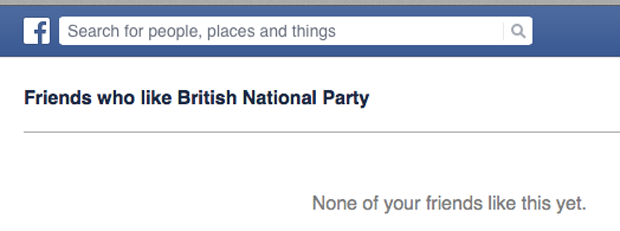
(Image: Katie Dancey)
Twitter trolls, online mobs and “offensive” Facebook posts are constantly making headlines as authorities struggle to determine how to police social media. In a recent development, links posted on Facebook allow users to see which of their friends have “liked” pages, such as those representing Britain First, the British National Party and the English Defence League. When clicking the links, a list appears of friends who have liked the page in question. Many Facebook users have posted the links, with the accompanying message stating their intention to delete any friends found on the lists. One user wrote, “I don’t want to be friends, even Facebook friends, with people who support fascist political parties, so this is just a quick message to give you a chance to unlike the Britain First page before I un-friend you.” Tackling racism is admirable, but when the method is blackmail and intimidation, who is in the wrong? All information posted on Facebook could be considered as public property, but what are the ethical implications of users taking it upon themselves to police the online activity of their peers? When social media users group together to participate in online vigilantism, what implications are there for freedom of expression?
This online mob is exercising its right to freedom of expression by airing views about right wing groups. However, in an attempt to tackle social issues head on, the distributors of these links are unlikely to change radical right-wing ideologies, and more likely to prohibit right-wing sympathisers from speaking freely about their views. In exerting their right to free speech, mobs are at risk of restricting that of others. The opinions of those who feel targeted by online mobs won’t go away, but their voice will. The fear of losing friends or being labelled a racist backs them into a corner, where they are forced to act in a particular way, creating a culture of self-censorship. Contrary to the combating of social issues, silencing opinion is more likely to exacerbate the problem. If people don’t speak freely, how can anyone challenge extreme views? By threatening to remove friends or to expose far right persuasions, are the online vigilantes really tackling social issues, or are they just shutting down discussions by holding friendships to ransom?
Public shaming is no new tactic, but its online use has gone viral. Used as a weapon to enforce ideologies, online witch-hunts punish those who don’t behave as others would want them to. Making people accountable for their online presence, lynch mobs target individuals and shame them into changing their behaviour. The question is whether groups are revealing social injustices that would otherwise go unpunished, or whether they are using bullying tactics in a dictatorial fashion. The intentions of the mob in question are good; to combat racism. But does that make their methods justifiable? These groups often promote a “with us or against us” attitude; if you don’t follow these links and delete your racist friends, you must be a racist too. Naming and shaming those who don’t follow the cultural norm is also intended to dissuade others from participating in similar activities. Does forcing people into acting a certain way actually generate any real change, or is it simply an act of censorship?
With online mobs often taking on the roles of judge, jury and executioner, the moral implications of their activities are questionable. It may start as a seemingly small Facebook campaign such as this one, but what else could stem from that? One Facebook user commented, “Are you making an effort to silence your Facebook friends who are to the right of centre?” This concern that the target may become anyone with an alternative political view demonstrates the cumulative nature of online mobs. Who polices this activity and who decides when it has gone too far?
Comments under the Facebook posts in question invite plenty of support for the deletion of any friends who “like” far right groups, but very rarely does anyone question the ethics of this approach. No longer feeling they have to idly stand by, Facebook users may feel they can make an impact through strength in numbers and a very public forum. Do those who haven’t previously had a channel for tackling social issues suddenly feel they have a public voice? Sometimes it’s difficult to accept that absolutely everyone has the right to free speech, even those who hold extreme views. In a democracy, there may be political groups that offend us, but those groups still have a right to be heard. The route to tackling those views can’t be to silence them, but to encourage discussion.
This article was posted on July 9, 2014 at indexoncensorship.org
08 Jul 14 | Egypt, News and features
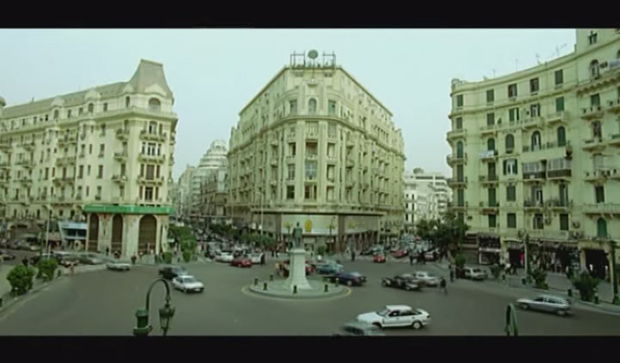
A still from the trailer of big-budget Egyptian film Yacoubian Building (Image: Strand Releasing/YouTube)
When mass protests broke out in Egypt on January 25 2011, the uprising took many people around the world, including Egyptians, by surprise. But some believe the stage was in fact already being set for revolution years earlier — and that popular culture played a part.
On 17 December 2010, Mohamed Bou Azizi, a Tunisian street vendor had set himself on fire in protest of the confiscation of his wares and the humiliation inflicted on him by a municipal official. His act sparked mass street protests in Tunisia which 28 days later, led to the overthrow of the authoritarian regime of Zine El Abidine Ben Ali.
When Ben Ali fell, analysts questioned whether the uprising in Tunisia would inspire similar revolts in other North African countries with despotic regimes, including Egypt which they pointed out, also suffered enormous socio-economic inequalities, widespread youth unemployment and political marginalisation of the masses.
The thought of a mass uprising in Egypt was however, quickly dismissed by Egyptian officials as “outrageous”.
“Egypt is not Tunisia”, scoffed veteran diplomat Amr Moussa when I asked him if Egypt would be next. I met Moussa on January 19, 2011 at a Sharm El Sheikh conference on Arab Economic Integration — a gathering that was overshadowed by the dramatic events unfolding in Tunisia. The veteran diplomat who had served as foreign minister under Hosni Mubarak, confidently told me that Egypt was “a much bigger country and vastly different in terms of demography”. Moussa’s argument convinced me. Indeed, Tunisia is a homogeneous society with a relatively well-educated population unlike Egypt — a more diverse society with in excess of 16 million illiterate people, according to a 2012 study released by the Central Agency for Public Mobilisation and Statistics.
Besides, there was widespread political apathy in Egypt. For decades, the Egyptian people had silently tolerated rights abuses at the hands of the corrupt regime. So patient were the Egyptians with their repressive government that analyst Khaled Diab joked about their political apathy in an op-ed published in the Guardian in June 2009, saying that: “The people of Egypt possessed some sort of a cultural gene against rebellion and risk taking.”
It was not surprising that the Egyptians had shown remarkable immunity to the Tehran protest virus, he wrote, explaining that “the Egyptian people had for decades, been ruled by a long succession of foreigners who cared little for their well being. They considered their native rulers just as alien.”
The widely-anticipated political pandemic had hitherto, failed to materialise… Until Tunisians revolted.
But contrary to popular belief, the eighteen-day uprising that overthrew Mubarak was not an “overnight eruption”. In fact, it had taken several years of ground-laying and a series of events helped pave the way for the revolt that was to come.
Some analysts believe the stage was being set for the 2011 mass protests from as early as 2004, not long after the fall of Iraqi strongman Saddam Hussein.
This was the year Egyptian intellectuals, artists and activists founded the Kefayya (Enough) Movement that would oppose the Mubarak regime and call for fundamental constitutional and economic reforms. Although the overarching ideology of the movement is largely secular, many members of the then-outlawed but tolerated Muslim Brotherhood joined forces with the leftists and secularists.
Moreover, there were the workers’ unions, which in the years leading up to the uprising had organised a series of labour strikes, protesting low wages and rising food costs. The 2008 labour protests which began as an initiative of workers in the textile industry in Mehalla El Kobra and other Egyptian cities, inspired mass momentum and were the first spark that ignited the street protests that followed two years later.
Egypt’s pro-democracy youth activists were also active and widely credited for using social media networks to fuel the anger against the brutal regime. The April 6 Youth Movement and “We are All Khaled Said” Facebook group mobilised Egyptians for the protests by posting videos of police brutality and calling for civil disobedience.
Again, contrary to popular belief, the January 2011 uprising was not merely a “people’s movement”, as it has often been described. Some analysts think the uprising may have been driven by the security state much like the revolt that ousted Mohamed Morsi, Egypt’s first freely elected president, two years later. Breakaway members of Tamarod, the movement that last summer gathered signatures for a petition calling on the Islamist president to step down, later revealed that “state security agents had guided and influenced our campaign”.
Some members of the group went as far as admitting that “some of the movement’s founders had been planted by state security” according to a Reuters article published online on February 20, 2014. Similarly, the January 25 uprising may have also been guided, albeit more subtly by the deep state — a term used to refer to the country’s combined security apparatus: the intelligence services, the police and National Security. It was no secret that Mubarak had been grooming his son Gamal to succeed him — a move that was rejected by senior-ranking generals in the army. The generals had expected the succession bid to cause popular unrest and decided to be prepared to step in.
“General Abdel Fattah El Sisi, who was head of military intelligence in 2010, had already been picked by his bosses as the country’s next defence minister and was asked to prepare a study of Egypt’s political future. He proposed that the army should be prepared to move in to ensure stability and preserve its central role in the state in the likely event of civic unrest breaking out,” journalist Richard Spencer wrote in an opinion piece published in the Telegraph in June 2014. Political analyst Hassan Nafaa was quoted as telling Spencer that: “When the revolution of 2011 exploded, the army had already made plans to deploy.”
“They chose to sacrifice Mubarak rather than the regime itself,” Nafaa added.
Egypt’s powerful military firmly believes it is entitled to remain in power, having fought two wars with Israel. Besides, at stake — should the country be ruled by a civilian president — is the military’s vast business empire estimated to be as much as 40 percent of the country’s GDP.
So how did the deep state in Egypt prepare unsuspecting Egyptians for the uprising that was to come?
Culture and the arts served as the catalysts for the movement for change that was being shaped as early as four or five years before the actual “revolution” erupted. From 2006 onwards many artistic works, including locally-produced films screened in Egyptian theatres, helped fuel the people’s anger and frustration, inciting protests against the inept government. While some may dismiss this theory as absurd, in reality, there is strong evidence to support it.
Take the big-budget film “Yacoubian Building”, based on the novel of the same name by author Alaa Aswany, a member of the opposition Kefayya Movement. The three hour epic, screened in Egypt in 2006, shed the spotlight on a host of societal ills including the rampant corruption, sexual repression and religious fundamentalism plaguing contemporary Egyptian society. It also reflected the hopes of young Egyptians for a just society based on rule of law and respect for civil liberties. Like Egypt itself, the building in which the film’s lead characters reside had crumbled “from a once-elegant edifice of Art-Deco splendour now slowly decaying in the smog and bustle of downtown Cairo”, Nana Asfour, who works as a cultural editor for the New Yorker, wrote in a 2007 review of the book.
The book brings to life “a seedy and despicable Cairo where only the corrupted and corruptible can fare well” she wrote, adding that “in this scathing critique of contemporary Egyptian society, one is hard put to find a redeemable character”.
From Abdou and Busayna, who by necessity acquiesce to selling their bodies to feed their families, to Talal, who seeks solace in religion and later resorts to “martyrdom” — they all are victims of their merciless society. The film also portrays the fake religiosity widespread in today’s Egypt where many conceal their greed behind deceiving pious behaviour and appearances — like prominent lawyer Kamal El Fouli who rigs the parliamentary vote in favour of Hag Azzam, justifying the action as “implementation of God’s will”.
“Our Lord created the Egyptians to accept authority,” El Fouli tells Azzam in the film.
Shocking as it was to an audience previously unaccustomed to having the realities of their everyday lives mirrored so brazenly, the Yacoubian Building was a wake-up call to many Egyptians who were able to identify with the film’s characters. It was also the first in a series of films produced between 2005 and 2010 that were fiercely critical of society and which spurred Egyptians to rebel against the flagrant injustices within it.
Heya Fawda (“It’s Chaos”), an Egyptian-French 2007 co-production and the last film by internationally-acclaimed Egyptian director Youssef Shahin, meanwhile brought international attention to Egypt’s longstanding problem of police corruption and brutality when it was screened at that year’s Venice Film Festival. Police brutality was one of the main causes that triggered the 2011 uprising which aptly coincided with the country’s National Police Day. Set in Cairo’s populous district of Shoubra, the film shockingly depicts the brutal actions of a shady police officer, feared and loathed by the residents in his neighbourhood. So shocking was his brutality that it prompted some film critics to question whether the film was “serious or a lampoon”.
Khaled Youssef, who co-directed the film with Shahin, was later credited with having had the vision to foresee the coming political changes and for “stirring the still waters” with his films. The filmmaker and scriptwriter, who joined the pro-democracy activists in Tahrir Square during the 2011 uprising, would later reveal himself as a fierce opponent of the democratically elected Muslim Brotherhood regime, aligning himself closely with the military-backed authorities that replaced the ousted Morsi. His close links with the military have raised questions over whether his films were actually the outcome of his foresight or a premeditated and carefully calculated plan by the country’s security apparatus to topple Mubarak.
Youssef’s follow-up to Heya Fawda was another shocking revelation of the flagrant social injustice prevalent in modern-day Egyptian society. Set in a Cairo slum area, it depicts the daily struggles of the inhabitants of this deprived neighbourhood, including sexual violence against women and the plight of street children. The film ends with the residents of the slum rising up in arms to protest their conditions — which some observers viewed as a possible beckoning call on needy Egyptians to rise in similar fashion.
Last but not least, was the 90 minute comedy “The President’s Chef” released in 2010. In the film, a simple cook tries to convey to a president out of touch with his people, the hardships faced by average Egyptians in their daily lives. Film critics drew similarities between the film’s lead character and the real president who during the last ten years of his rule, had often been criticized for isolating himself in his own ivory tower, oblivious to the needs of his people.
In a country with a long tradition of strict censorship rules, one cannot help but wonder if the censors’ decision to pass those films was a coincidental loosening up of their tight restrictions in a bid to give a semblance of democracy and free speech. Or was it instead, a deliberate and tactical scheme to pave the way for Mubarak’s ouster?
Looking back at the events of the last three years that have ended with the return of the old regime minus Mubarak, it appears clear that nothing in Egypt happens by sheer coincidence.
This article was posted on 7 July 2014 at indexoncensorship.org
07 Jul 14 | About Index
Index on Censorship is now recruiting for its next Youth Advisory Board for a six month term (December 2014 to May 2015). The board is open to 16-25 year old volunteers from around the world.
To apply to be on our youth board please send your CV and a covering letter to [email protected], stating what you think is the most pressing free speech issue of the moment.
Deadline for applications is 7th November 2014 at 5pm.
Find more information about the role of Index’s Youth Advisory Board and current board members below.
What is the youth board?
The youth board is a specially selected group of young people aged 16-25 who will advise and inform Index on Censorship’s work, supporting our ambition to fight for free expression all around the world and ensuring our engagement with issues relevant to tomorrow’s leaders.
Why has Index started a youth board?
Index on Censorship is committed to fighting censorship not only now, but also in future generations, and we want to ensure that the realities and challenges experienced by young people in today’s world are properly reflected in our work.
Index is also aware that there are many who would like to commit some or all of their professional lives to fighting for human rights and the youth board is our way of supporting the broadest range of young people to develop their voice, find paths to freely expressing it and potential future employment in the human rights/media/arts sectors.
What does the youth board do?
Board members meet once a month via Google Hangout to discuss the most pressing freedom of expression issues of the moment and to set a monthly question for our project, Draw the Line. You will be expected to write a minimum of 1 blog post introducing/concluding the question of the month and to help us spread the word about Index.
There is also the opportunity to get involved with events such as debates and workshops for our work with young people and also events such as our annual Index Freedom of Expression Awards and Index magazine launches.
How do people get on the youth board?
Each youth board will sit for a term of 6 months.
Current board members are invited to reapply up to one time.
The board will be selected by Index on Censorship in an open and transparent manner and in accordance with our commitment to promoting diversity.
Why join the Index on Censorship youth board?
You get the chance to be associated with a prestigious media and human rights organisation and have the opportunity to discuss issues you feel strongly about with Index and with other amazing young people (internationally). At each Board meeting we will also give you the chance to speak to someone senior within Index or the media/human rights/arts sectors, helping you to develop your knowledge and extend your personal networks and you’ll be featured on our website.
Index on Censorship Youth Advisory Board
Alice Olsson

Alice is a student journalist and human rights advocate. Originally from Stockholm, Sweden, she is currently reading English and related literature at the University of York. Her main research interest is contemporary freedom and resistance writing, particularly the function of different media channels in modern revolution narratives.
Daniel Rey

Daniel is an eighteen-year-old student about to begin his studies at St Andrews University. Daniel thinks that freedom of expression and freedom of speech are important primarily due to their central role in the functioning of a democratic state and a civic society.
Farah Wael

Farah is an Egyptian who has been working on freedom of expression issues, with a special focus on press freedom in the Middle East and Arab world. She now lives somewhere between Cairo, Paris and Beirut.
Margot Tudor

Margot is studying history at the University of Bristol. She became interested in free expression issues thanks to the Libel Reform movement in 2010. Since then Margot has developed her involvement in current affairs by being a reporter for Epigram Newspaper and becoming deputy head of news for UBTV.
Morgan Meaker

Morgan is a human rights and arts journalist based in London. Morgan has been published by The Young Greens, Dazed & Confused, Time Out, The Huffington Post and London Calling. While living in Berlin, she set up political art magazine The Illuminator and she is currently working on the launch of SOUF – a platform dedicated to South London.
Priyanka Mogul

Priyanka is manager of the International Political Forum and studies journalism with human rights at Kingston University. She is also communications intern for the United Nations Association and has just been re-elected for her third term as president of the Kingston University Journalism Society. Priyanka recently founded the Spread The Word Campaign, which aims to open libraries in homeless shelters across London.
Sheema Ghani

Sheema studied to become an engineer from NED University of Engineering and Technology, Karachi. Sheema’s desire to be an agent for a positive change in her society has allowed her to play an important role in the rehabilitation of victims of bomb blasts and natural calamities. Being a supporter of interfaith harmony, minority rights and free media, she is proud to represent Pakistan on the youth board at Index on Censorship.
Sophie Armour

Sophie is an editor at a media analysis company, as well as a freelance writer and active member of the Green Party. A journalism graduate originally from Manchester, she spent five years as a freelance music journalist, going on to run London nightlife blog and digital magazine, Standard London Evening.
07 Jul 14 | Draw the Line, Events, Young Writers / Artists Programme
As cheers from the World Cup rumbled in the background, Index set up an online platform to debate the tussle between sport and freedom of speech. As part of the Draw the Line series of discussions, last month’s question was: Should repressive regimes be banned from sport? If countries have poor human rights record, do they deserve to participate?
Twitter erupted with opinions. Immediately the question of defining a repressive regime was raised – whose duty would it be to decide? Although many might agree that Iran’s government-controlled press was anti-free speech, would the US’s treatment of whistleblower Edward Snowden fall into the same category?
Others argued that banning offending countries would leave their crimes in the shadows. Instead they believed oppressive regimes should suffer the spotlight of global media – hoping that the publicity would encourage conversation and spark change.
Opinions seemed split at the first Draw the Line event, where ten young human rights activists gathered to discuss the same issue. Although some declared passionately that repressive regimes must be punished, there were fears that a ban would misdirect that punishment – affecting a country’s people rather than its leaders.
Defining the World Cup’s worst countries for free speech – or the “group of death” – seemed to make a much easier task for the young activists. Examining democracy, civil liberties, press regulations, internet freedom and corruption, participants unanimously decided that Cameroon, Iran, Nigeria and Russia qualified as the countries that held freedom of speech in the lowest regard.
As the debate evolved, a common consensus emerged: A campaign should be set up to stop countries that stifle free speech from hosting high profile sports events, like the world cup. With host countries benefiting from huge boosts to the economy, infrastructure and community spirit, this should be incentive enough to halt human rights abuses without punishing innocent citizens by banning countries completely.
More about Draw the Line
07 Jul 14 | Morocco, News and features, Statements
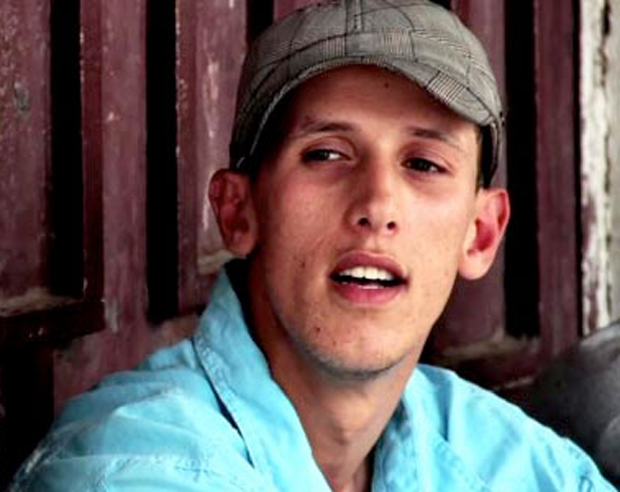
The Moroccan rapper Mouad Belghaoute – also known as Lhaqed or El Haqed, ‘the enraged one’ – was sentenced on 1 July 2014 to four months in prison amid concerns that the trial was unfair, and that he is being held because of his popularity and lyrics that condemn corruption and police brutality. Arrested on 18 May, the 26-year-old rapper is expected to remain in prison until mid-September.
In an Open Letter to the Moroccan Minister of Justice and Liberties El Mustapha Ramid, 11 organisations committed to the defence of the rights to freedom of expression, culture and the arts have condemned the four-month sentence served against Mouad Belghouate following a trial that fell short of international standards:
7 July 2014
Mr El Mustapha Ramid
Minister of Justice and Liberties
Ministère de la Justice et des libertés Place El Mamounia – BP 1015
Rabat
Morocco
Fax: +212 537 73 47 25
We the undersigned organisations committed to the defence of the rights to freedom of expression, culture and the arts, condemn the four-month sentence served against musician Mouad Belghouate (aka El Haqed) following a trial that fell short of international standards. We are concerned that the sentence has been given in retribution for his involvement in Morocco’s pro-democracy movement, and specifically his condemnation of corruption and police violence through his music.
Convicted of assaulting police officers during an incident in Casablanca on 18 May 2014, evidence including testimonies of witnesses to the incident were not accepted by the court. This led defence lawyers to withdraw from the proceedings calling them “unjust” and “unfair”.
This is the third incident since 2011 where Belghouate has been imprisoned following trials that have been condemned as highly flawed. Notably in May 2012 he was imprisoned for 12 months for insulting police in a song and its accompanying video, a charge that clearly violated his rights to freedom of expression.
Belghouate has been closely engaged with the 20th February democracy movement, and he has been openly critical of corruption in Morocco and accused police of brutality in his lyrics, leading to concerns that these are the source of the accusations against him, concerns that are heightened by trial irregularities.
Morocco has ratified the International Covenant on Civil and Political Rights which includes the rights to freedom of expression and fair trial. We therefore call on the Moroccan authorities to immediately release Mouad Belghouate and to ensure that any appeal be carried out fairly and include all evidence and witnesses relevant to the case.
Yours sincerely,
Arterial Network
ARTICLE 19
European Composer and Songwriter Alliance
European Council of Artists
freeDimensional
Freemuse
Index on Censorship
Initiative for Freedom of Expression, Turkey
Equity’s International Committee for Artists’ Freedom (ICAF)
Observatoire de la liberté de creation, France
Vivarta
Copies to:
President of National Human Rights Council Mr. Driss El Yazmi
Minister of Culture, Mr Mohamed Amine Sbihi
Association Marocaine des Droits Humains (AMDH), Mr. Ahmed El Haij (President)
» Arabic: المغرب: رسالة مفتوحة إلى وزير
» French: Maroc: Lettre ouverte à Mr El Mustapha Ramid
04 Jul 14 | Awards, News and features
Three months have passed since the 2014 Index Awards and we caught up with arts nominee, Lucien Bourjeily. The Lebanese playwright told Index he is working on the sequel to his play, Will It Pass Or Not?, which was banned because it was about censorship. He hopes the same will not happen to the sequel, but says that even if it does, he is motivated to keep working and to get his message out.
Lebanon: General security return passport to critical writer (29 May 2014)
Index Freedom of Expression Awards: Arts nominee Lucien Bourjeily (13 March 2014)
From the Magazine: Will It Pass or Not? A play by Lucien Bourjeily (12 Feb 2014)







